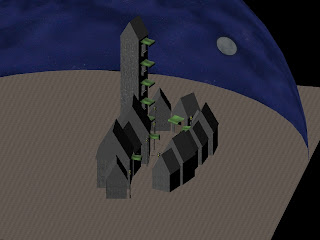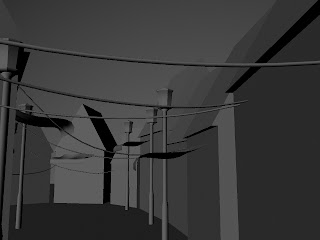the camera that monitors the pencil
the camera that monitors the coffee mug
the camera on the motion path
Wednesday, December 12, 2012
Monday, November 26, 2012
Tuesday, November 13, 2012
shadows in the school demonstrated in photos
the shadow source was the light in the hall, and it was coming from the top left
the cone angle was large and faded
the shadow source was and light above the stopper, and it was coming from the top left
the cone angle was large and faded
the shadow sources were the lights and the were coming from the top
the cone angle was large and faded
the shadow source was the sun and it was from the top left
the cone angle was sharp and large
the shadow source was the ceiling light and it was coming from the top left
the cone angle was large and faded
the shadow source was the ceiling light, and it was coming from the top right
the cone angle was large and faded
the cone angle was large and faded
the shadow source was and light above the stopper, and it was coming from the top left
the cone angle was large and faded
the shadow sources were the lights and the were coming from the top
the cone angle was large and faded
the shadow source was the sun and it was from the top left
the cone angle was sharp and large
the shadow source was the ceiling light and it was coming from the top left
the cone angle was large and faded
the shadow source was the ceiling light, and it was coming from the top right
the cone angle was large and faded
Friday, October 26, 2012
my lighted alleyway
On the lighting, I found the point lights for the lamp posts to be the most difficult. It was hard to find an intensity that was proper for the alley, and I had to tweak the instructions a lot.
Friday, October 19, 2012
Tuesday, October 9, 2012
Wednesday, October 3, 2012
Friday, September 21, 2012
Friday, September 14, 2012
Friday, September 7, 2012
MY ALLEY WAY PIC-A-TURE!!!!!! (a.k.a. essential shots)
I used Maya to make this pictures, and used basic polygons and other's wisdom to make them look like real things. :)
Monday, September 3, 2012
An extreme long shot is a wider frame value in which subjects in the frame are small; such as a building or cityscape. Usually very little detail is expressed in this shot due to the wideness of the shot.
A long shot is what you might call a "life-size" shot, and the wideness of the shot allows for a focus on the characters, but still shows you detail about the surrounding atmosphere.
The full shot falls into the same category as the long shot, for a shot of a human would have the head at the top of the shot, and the feet near the bottom.
The mid shot most closely resembles what the viewer would see if they were engaging in casual conversation with the subject. The shot shows more detail of less of the body, rendering the lower body unneccessary.
The close up shot is used to magnify what the viewer feels about the subject, be it good or bad. The main use of the shot is to draw attention to certain smaller things that the viewer would otherwise miss about the subject being viewed.
The extreme close up is exactly what it sounds like, a close up shot, times ten. It places everything under scrutiny, and only shows the eyes or mouth with absolutely no background detail.
The bird's eye shot gives a unique viewing experience to the viewer by pulling them away from their normal perspective and detaching them from the action taking place below, allowing for a unique perspective for the shot.
The high angle shot is almost just like the birds eye, but moved closer in. This shot allows the viewer to see the details of a shot, with all the details and action, but from far enough away to take in the whole scene.
The eye level shot is a decently neutral shot and is used as though the camera is the head of a human, viewing the scene from a similar standpoint to a human's visual range.
My favorite three shots are the Exteme Long Shot, the full shot, and the low angle shot. I like the extreme long shot because I think that landscapes are really pretty, and that shot allows for plenty of background detail, and I like the full shot and the low angle shot for the same reason, it allows for a really cool profile for the character in the scene(such as what is shown above).
The high angle shot is almost just like the birds eye, but moved closer in. This shot allows the viewer to see the details of a shot, with all the details and action, but from far enough away to take in the whole scene.
The low angle is a shot that makes everything seem taller, and makes the action seem to be quicker. This shot also makes the viewer feel you slightly confused or powerless in an action packed scene.
The eye level shot is a decently neutral shot and is used as though the camera is the head of a human, viewing the scene from a similar standpoint to a human's visual range.
My favorite three shots are the Exteme Long Shot, the full shot, and the low angle shot. I like the extreme long shot because I think that landscapes are really pretty, and that shot allows for plenty of background detail, and I like the full shot and the low angle shot for the same reason, it allows for a really cool profile for the character in the scene(such as what is shown above).
Subscribe to:
Comments (Atom)





































